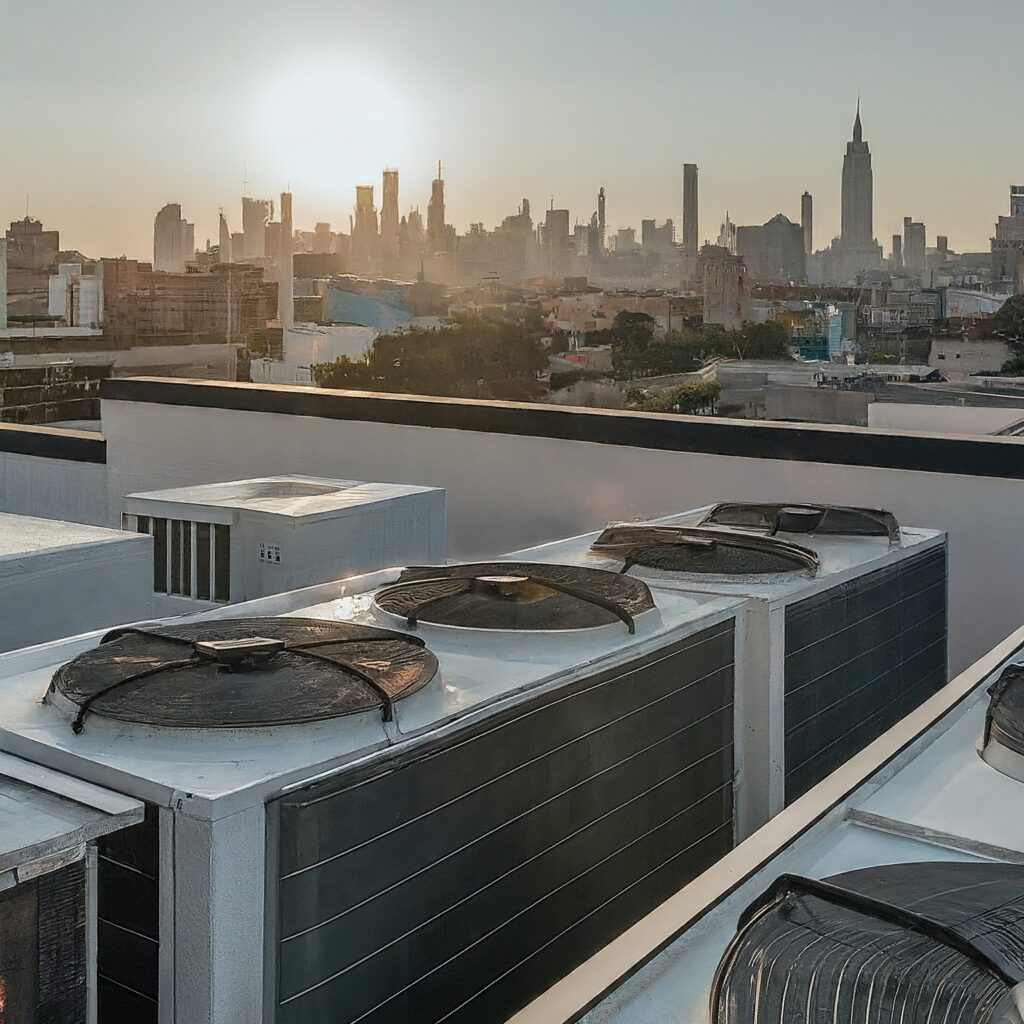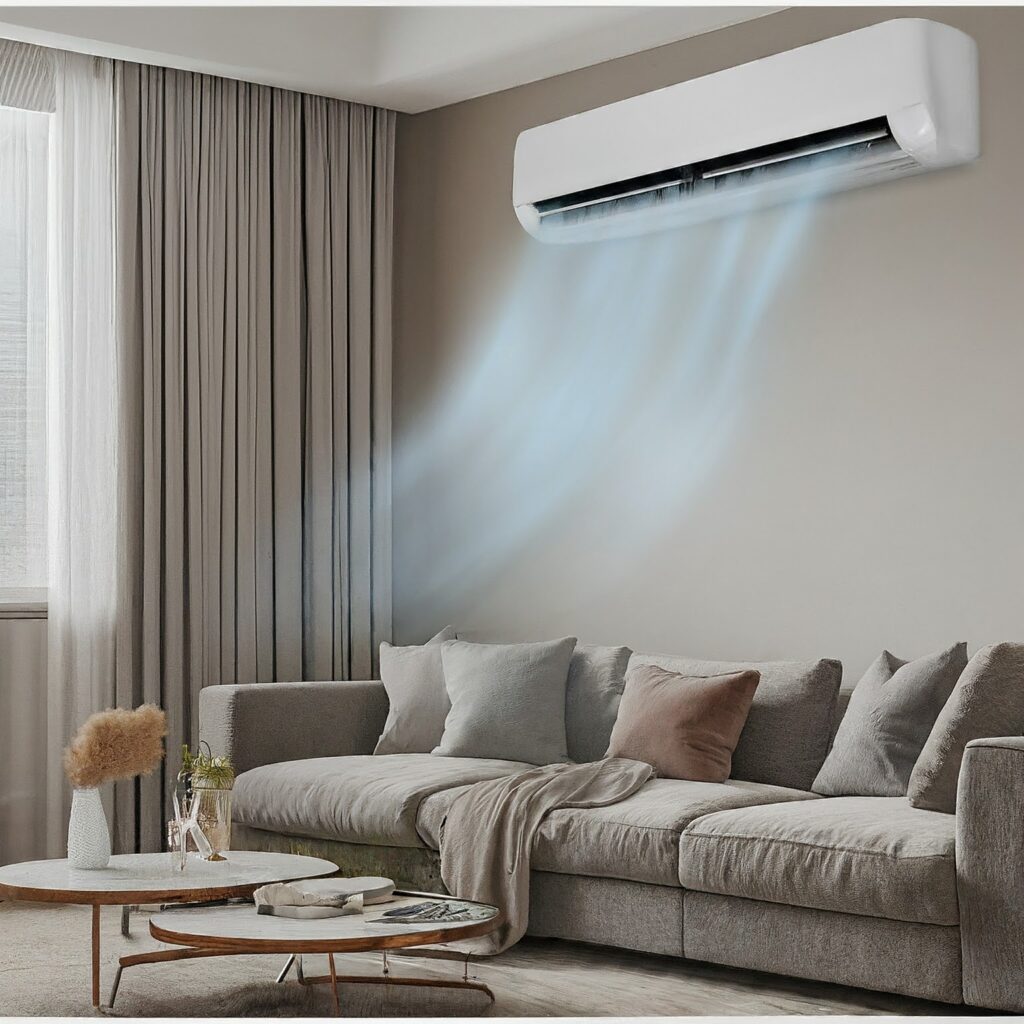As a homeowner, you rely on your HVAC system to keep your home comfortable year-round. But like any complex machinery, HVAC units can experience issues that impact performance and leave you sweating in the summer or shivering in the winter. Luckily, the experts at American Home and Commercial Services, with over 10 years in the HVAC industry, are here to help. In this guide, we’ll cover common HVAC problems and provide tips on how to troubleshoot and fix them.
Weak or No Airflow
One of the most frequent HVAC issues is weak or no airflow from the vents. This can be caused by several factors:
- Dirty air filter – A clogged filter restricts airflow. Check and replace filters every 1-3 months.
- Blocked vents – Make sure vents are open and not blocked by furniture or debris.
- Leaky or disconnected ductwork – Inspect accessible ductwork and seal any leaks with mastic or metal tape.
- Malfunctioning blower motor – If the motor is failing, you’ll need professional HVAC repair.
Troubleshooting Tips
- Always start by checking the air filter and replacing if dirty.
- Walk through your home and ensure all vents are open and unobstructed.
- Inspect ductwork and contact an HVAC contractor if you suspect leaks or damage.

AC Not Cooling
An AC that’s running but not cooling is another common problem. Potential causes include:
- Low refrigerant – A leak in the refrigerant line will cause levels to drop, impacting cooling. An HVAC repair technician will need to find and fix the leak.
- Frozen evaporator coil – Dirt buildup or low refrigerant can cause the coil to freeze. Turn off the AC and allow it to thaw before resuming use.
- Dirty condenser coil – If the outdoor unit is clogged with dirt and debris, heat transfer is impeded. Clean the coil with a hose (power off first).
- Faulty compressor – A failing compressor requires professional diagnosis and likely replacement.
Troubleshooting Tips
- Check the outdoor unit and clear away any debris or vegetation.
- Gently clean the condenser coil fins with a soft brush and hose (power off).
- Schedule annual maintenance with an HVAC contractor to prevent issues.
Odd Noises
While some noise is normal, loud or unusual sounds from your HVAC system can indicate a problem:
- Rattling or buzzing – May be loose parts or debris in the unit. An HVAC repair pro should inspect and tighten or replace parts as needed.
- Screeching or squealing – Likely a bad blower motor belt or failing bearings. Belt replacement or repair is required.
- Clicking – Possibly a failing thermostat or electrical issue. An HVAC tech can diagnose and repair.
Troubleshooting Tips
- Note when the noise occurs (startup, continuous, etc.) to help pinpoint the issue.
- Check for any obvious loose parts or debris and carefully remove if possible.
- Contact an HVAC contractor promptly if noises persist to prevent further damage.
Tripped Breakers
If your HVAC unit is frequently tripping the circuit breaker, there may be an electrical problem such as:
- Short circuit – Damaged wiring or components can cause a short. An HVAC repair expert should find and fix the underlying issue.
- Overloaded circuit – If the unit is drawing too much power, you may need a dedicated circuit installed.
- Loose electrical connections – Over time, vibrations can shake wiring loose. An HVAC tech will tighten and secure connections.
Troubleshooting Tips
- Check the circuit breaker panel and reset a tripped breaker (once only).
- Unplug any other devices on the same circuit to reduce the electrical load.
- Schedule professional HVAC repair if breakers continue to trip.

Uneven Temperatures
Inconsistent temperatures between rooms or levels can make your home uncomfortable. Common causes include:
- Improperly sized unit – An HVAC system that’s too large or small for the space will struggle to evenly cool or heat. Consult with an HVAC installation pro about options.
- Leaky ductwork – Damaged ducts can allow conditioned air to escape before reaching certain rooms. Duct sealing or repair is needed.
- Closed or blocked vents – Verify all vents are open and unobstructed to allow for proper airflow distribution.
- Inadequate insulation – Insufficient insulation, especially in attics, allows heat transfer that impacts comfort. Adding insulation can help.
Troubleshooting Tips
- Ensure vents are open and redirecting airflow to problem areas.
- Check doors and windows for drafts and add weatherstripping if needed.
- Consider HVAC replacement if your unit is improperly sized or aging.
Rapid Cycling
An HVAC unit that turns on and off too frequently, known as rapid cycling, puts excessive wear on components. Causes may be:
- Clogged air filter – A dirty filter makes the unit work harder and cycle more. Replace filters regularly.
- Faulty thermostat – Incorrect settings or a failing sensor can trigger cycling. An HVAC repair tech can recalibrate or replace the thermostat.
- Refrigerant leak – Low refrigerant due to a leak causes the unit to struggle to transfer heat, leading to more cycles. Professional repair is required.
- Oversized unit – If the system is too large for the space, it will reach the set temperature too quickly and short cycle. HVAC replacement with a properly sized unit is often the best solution.
Troubleshooting Tips
- Check and change the air filter if dirty.
- Test the thermostat’s accuracy with a separate thermometer.
- Schedule an HVAC contractor to assess refrigerant levels and unit size.
Ignition or Pilot Light Issues
For gas furnaces, problems with the ignition or pilot light can prevent heating. Potential reasons include:
- Dirty flame sensor – Soot buildup can prevent the sensor from detecting the flame and allowing gas flow. Cleaning the sensor often resolves this.
- Faulty ignitor – A failed electronic ignitor or hot surface ignitor will need to be professionally replaced.
- Thermocouple problems – A damaged thermocouple will shut off gas supply as a safety measure. Furnace repair is needed to replace the component.
- Drafts or clogs – Drafts around the furnace or clogs in the pilot tube can interfere with ignition. Check for debris or venting issues.
Troubleshooting Tips
- Visually inspect the pilot light and ensure it’s lit (blue flame).
- Check for loose wiring or obvious damage around the ignition area.
- Contact an HVAC repair professional to diagnose and repair faulty parts.
Pros and Cons of DIY vs Professional HVAC Repair
When faced with HVAC issues, homeowners often wonder whether to attempt DIY repairs or call in the pros. Here are some key considerations:
Pros of DIY HVAC Repair
- Potential cost savings on labor for simple fixes like changing air filters or cleaning condenser coils.
- Opportunity to learn more about your HVAC system and how to maintain it.
- Immediate attention rather than waiting for an appointment.
Cons of DIY HVAC Repair
- Risk of causing additional damage or improper repairs that void warranties or lead to costlier fixes.
- Lack of professional expertise to accurately diagnose more complex issues.
- Potential safety hazards from electrical components, refrigerants, or natural gas.
- May not have access to necessary parts or specialized tools.
Pros of Professional HVAC Repair
- Expert diagnosis and targeted repairs that address the root problem.
- Access to professional-grade tools, parts, and knowledgeable technicians.
- Familiarity with a wide range of HVAC brands, models, and the latest energy-efficient technologies.
- Proper licensure and insurance to perform work safely and protect your home.
- Peace of mind that repairs are completed correctly and often backed by guarantees.
Cons of Professional HVAC Repair
- Higher upfront costs compared to DIY for straightforward issues.
- Some disruption to schedule appointments around technician availability.
- Potential for upselling on services or repairs by some unscrupulous contractors.
Ultimately, the decision to DIY or hire an HVAC professional depends on the complexity of the issue, your comfort level with repairs, and the potential risks involved. For straightforward maintenance like replacing filters or hosing down condenser coils, many homeowners can safely handle these tasks. However, for anything involving electrical wiring, refrigerants, gas lines, or major part replacements, it’s best to enlist an experienced HVAC contractor like American Home and Commercial Services.
Not only will professional repairs deliver superior results and efficiency, but they’ll ensure the safety of your home and help prevent more extensive breakdowns. Plus, with an HVAC expert on your side, you’ll benefit from personalized recommendations to optimize your system’s performance, whether through smart thermostat upgrades, improved insulation, or well-timed HVAC replacements.
The key to minimizing costly HVAC repairs and extending the life of your unit is proper maintenance. By scheduling biannual tune-ups with a qualified technician and staying on top of basic upkeep like regular filter changes, you can avoid many of the common issues covered here. And if problems do arise, you can count on the knowledgeable pros at American Home and Commercial Services to deliver reliable HVAC installation, repair, and replacement services.
Don’t let HVAC troubles leave you hot under the collar. Arm yourself with the knowledge to recognize and troubleshoot issues quickly, and partner with a trusted HVAC contractor to keep your home comfortable and efficient in every season. With a proactive approach and the right professional support, you can breeze through any HVAC challenge that comes your way.



